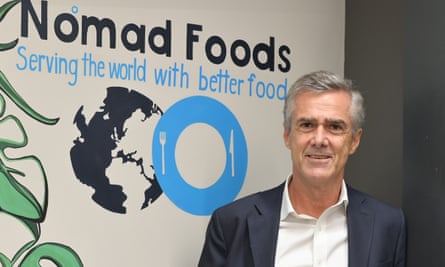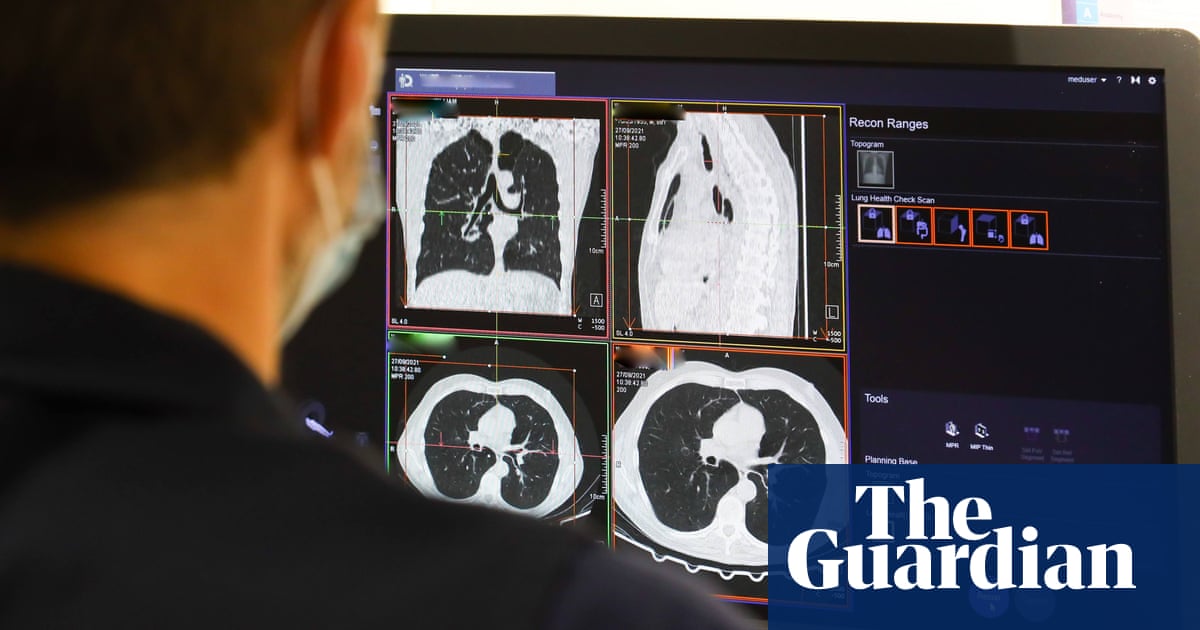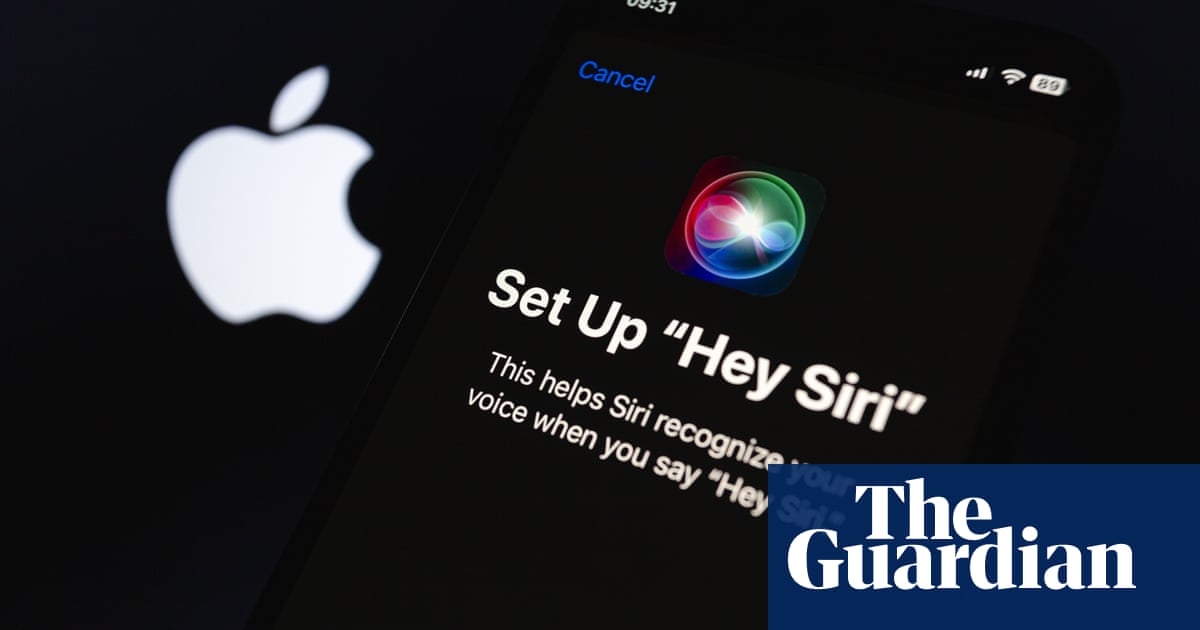Food firms should be forced to reveal how healthy or unhealthy their products are, to help people consume a better diet, an industry boss has said.
Ministers should compel companies to publish an annual report so consumers can see how much of their sales is made up of dishes that contain too much fat, salt and sugar, Stéfan Descheemaeker also said.
Descheemaeker is the chief executive of Nomad Foods, which owns popular brands such as Birds Eye fish fingers, Findus frozen foods and Goodfella’s pizzas.
He told the Guardian that mandatory publication of what proportion of each firm’s sales count as healthy or unhealthy under government guidelines would kickstart a “nutrition arms race” in which manufacturers would vie with each other to make their products better for health.
He also urged Wes Streeting, the health secretary, to ensure that all tins and packets of foodstuffs carry traffic light-style labels. This would also help tackle the obesity crisis because it would encourage people to choose more nutritious foods and shun less healthy options, he said.
And he threw his weight behind growing calls – backed by the House of Lords and the Labour-friendly Institute for Public Policy Research thinktank – for a new tax on products containing excessive amounts of salt or sugar.
His comments underline what one diet campaigner called the “quiet revolution” going on in the industry in its views on how best to tackle the UK’s addiction to unhealthy food. More and more manufacturers want the government to now order the sector to improve its behaviour, rather than relying on voluntary agreements as the Conservatives did during their 14 years in power.
“We support measures requiring companies to publish data. We believe that requiring all food companies to do this would drive a nutrition arms race, kickstarting an industry-wide reformulation drive, ultimately increasing the production, sale and consumption of tasty, healthy food,” Descheemaeker said in an interview.

For the last seven years Nomad has published figures showing the percentage of its net sales that are deemed healthy under the government’s nutrient profiling model of judging which products contain the right or wrong amounts of fat, salt and sugar. It was now at 93.3% overall healthy, he said, according to the official high in fat, sugar or salt (HFSS) assessment system.
Public disclosure of food firms’ sales would enable the creation of league tables that would allow those whose products are more often unhealthy to be named and shamed, backers say.
Tesco, Sainsbury’s, Iceland and the yoghurt maker Danone have already made clear they back mandatory reporting. The last government brought in a “food data transparency partnership” with industry aimed at putting details of companies’ sales into the public domain. Despite being conceived as being binding, it became a purely voluntary measure after industry protests.
“We believe that mandatory front-of-pack nutrition labelling could play a vital role in helping the public understand what is healthy and what is not,” Descheemaeker said. “We’ve seen this work in other European markets, such as France, where ‘nutri-scores’ have been shown to influence healthier purchase decisions.”
Some supermarkets and retailers in the UK use colour-coded labels on some or all of their products to alert consumers to how healthy or unhealthy they are, but the system is voluntary.
Both measures would prompt food manufacturers to reformulate their products by cutting the amount of fat, salt and sugar in them, Descheemaeker said. Doing so is easier than some firms have claimed, he added. He cited how Nomad had overhauled the nutritional makeup of Goodfella’s pizzas since buying the brand in 2018, by stripping out fat, salt and calories and adding more fibre, so that it now complies with HFSS rules as a healthy product.
Nomad has also cut the amount of sugar in its Aunt Bessie’s apple crumbles by 30% and added 15% more fibre so it too now counts as HFSS compliant. Since 2020 the company has also reduced the amount of salt in some of its products such as Birds Eye fish fingers (21%) and potato waffles (28%) for the same reason.
He said the scale of Britain’s obesity crisis was so great, and bad diet’s role in causing major diseases such as obesity and cancer so great, that the food industry overall needed to display much more “responsibility” to improve public health.
James Toop, the chief executive of chef Jamie Oliver’s diet campaign group Bite Back, said making data transparency obligatory would change a situation where most big food companies rely on sales of unhealthy products for their profits.
“Our research this year showed that our biggest food manufacturers in the UK made most of their profits from selling unhealthy products. It’s encouraging to see a growing number of senior food industry leaders are now openly supporting bold government action to improve the nutritional quality of what they sell,” he said.
“This quiet revolution happening in the UK food industry – with companies recognising their role in reducing the junk they package as food and committing to healthier products – is one we should all harness. Many of these leaders are now making it clear they want government policies that create a level playing field based on regulation, not just voluntary changes, so everyone is held to the same high standards.
“It’s vital we see measures like mandatory reporting on healthier sales and front-of-pack traffic light labels to hold companies accountable for providing healthier food alternatives.”
Last week the House of Lords food, diet and nutrition and obesity committee urged ministers to take a much more robust approach to the food industry to help address the obesity “public health emergency”.
It called for routine reporting of sales data, a new salt and sugar tax model modelled on the sugar tax, and “a decisive shift away from voluntary measures to a system of mandatory regulation of the food industry”.
Earlier this year Streeting warned food companies that a Labour government would use a “steamroller” to compel them to reformulate their products, but he has taken no action yet to pursue that since becoming the health secretary in July. He is understood to prefer reformulation to imposing a tax on salty and sugary products given the cost of living crisis.
A Department of Health and Social Care spokesperson said: “We are taking a range of actions to tackle the obesity crisis head on – shifting our focus from treatment to prevention – to ease the strain on an NHS in critical condition and help people to live well for longer.
“We are taking proportionate action including, restricting junk food advertising on TV and online, empowering councils to block the development of new fast-food shops outside of schools, and banning the sale of energy drinks to under 16s.
“Our 10-Year health plan will also reform the NHS by shifting its focus from sickness to prevention.”

.png) 2 months ago
24
2 months ago
24













































